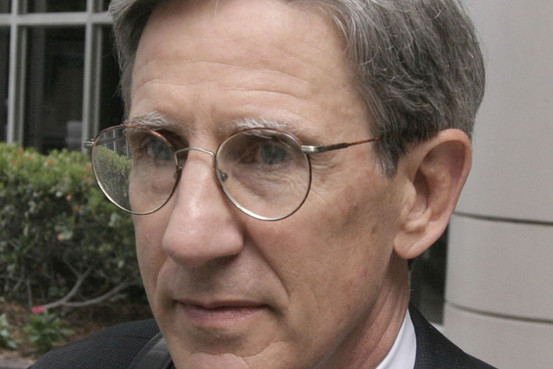 Landon Thomas, Jr. of the New York Times has written this major Sunday Times article about the sad case of Daniel Bayly, the former head of Merrill Lynch’s global investment banking division who is presently serving a two and a half year prison sentence as a result of his conviction on corporate fraud charges in connection with the controversial Enron-related Nigerian Barge case.
Landon Thomas, Jr. of the New York Times has written this major Sunday Times article about the sad case of Daniel Bayly, the former head of Merrill Lynch’s global investment banking division who is presently serving a two and a half year prison sentence as a result of his conviction on corporate fraud charges in connection with the controversial Enron-related Nigerian Barge case.
Mr. Thomas’ article is an excellent portrayal of the extraordinary personal damage that is resulting from the Justice Department’s dubious criminalization of business in the post-Enron era. Mr. Thomas points out how that the implementation of that policy has moved beyond catching big fish such as Ivan Boesky or Bernard Ebbers and is now ensnaring relatively unknown business executives such as Mr. Bayly, who really had limited involvement in the underlying transaction involved in the Nigerian Barge case.
Moreover, Mr. Thomas delves extensively into the troubling conduct of Merrill Lynch’s management, which offered up Mr. Bayly and his three Merrill colleagues to the Justice Department as sacrifical lambs in an effort to avoid an indictment of the firm that might have prompted an Arthur Andersen-type meltdown. The disturbing nature of such corporate sacrificial lamb offerings has been a frequent topic on this blog.
Mr. Thomas’ article is a refreshing change from the more common demonization of business executives that usually takes place in the mainstream media. However, beyond the scope of Mr. Thomas’ piece is the distressing conduct of the Enron Task Force prosecutors in the Nigerian Barge case and the other Enron-related criminal cases. Regardless of what one thinks about the issue of whether the Nigerian Barge case should have been made into a criminal case in the first place, no reasonable analysis of the case can justify the Task Force’s suppression of the truth during the trial of case.
In short, the Task Force took a reasonably complex finance transaction between Enron and Merrill Lynch and criminalized it through a brazen web of distortion, suppression of key testimony, inadmissible hearsay, opposition to the defense’s jury instruction on the key issue in the case and prosecutorial misconduct. Rather than charging Mr. Bayly and his colleagues and then allowing the jury to sort through all relevant testimony and evidence in determining the truth, the Task Force presented to the jury a fictional screenplay of the underlying transaction and then effectively prevented Mr. Bayly and the other defendants from presenting the mountains of testimony and evidence that contradicted the Task Force’s fictional account. To make matters worse, the Task Force is deploying precisely the same deplorable tactics in its legacy case against former key Enron executives Ken Lay, Jeff Skilling and Richard Causey.
Thus, despite the enormous personal tragedies that each of the families of the four Merrill Lynch executives involved in Nigerian Barge case are enduring, the even greater tragedy of this case is the damage done to our system of justice and the Rule of Law. For as Sir Thomas More reminds us, if we do not require the state to adhere to justice and the Rule of Law in even cases against the unpopular business executives of the moment, then “do you really think you could stand upright in the winds [of abusive state power] that would blow then?”
The Enron Task Force’s suppression of the truth in the Nigerian case is showing us precisely what happens when such ill winds blow, and the resulting emotional trauma that the Merrill Lynch executives and their families are experiencing cannot reasonably be dismissed as merely a trade-off of an imperfect system.
Like this:
Like Loading...

 I wonder how many American International Group, Inc. shareholders are glad that the Lord of Regulation ridded the company of its supposedly fraud-indulging former CEO, Maurice “Hank” Greenberg?
I wonder how many American International Group, Inc. shareholders are glad that the Lord of Regulation ridded the company of its supposedly fraud-indulging former CEO, Maurice “Hank” Greenberg?








